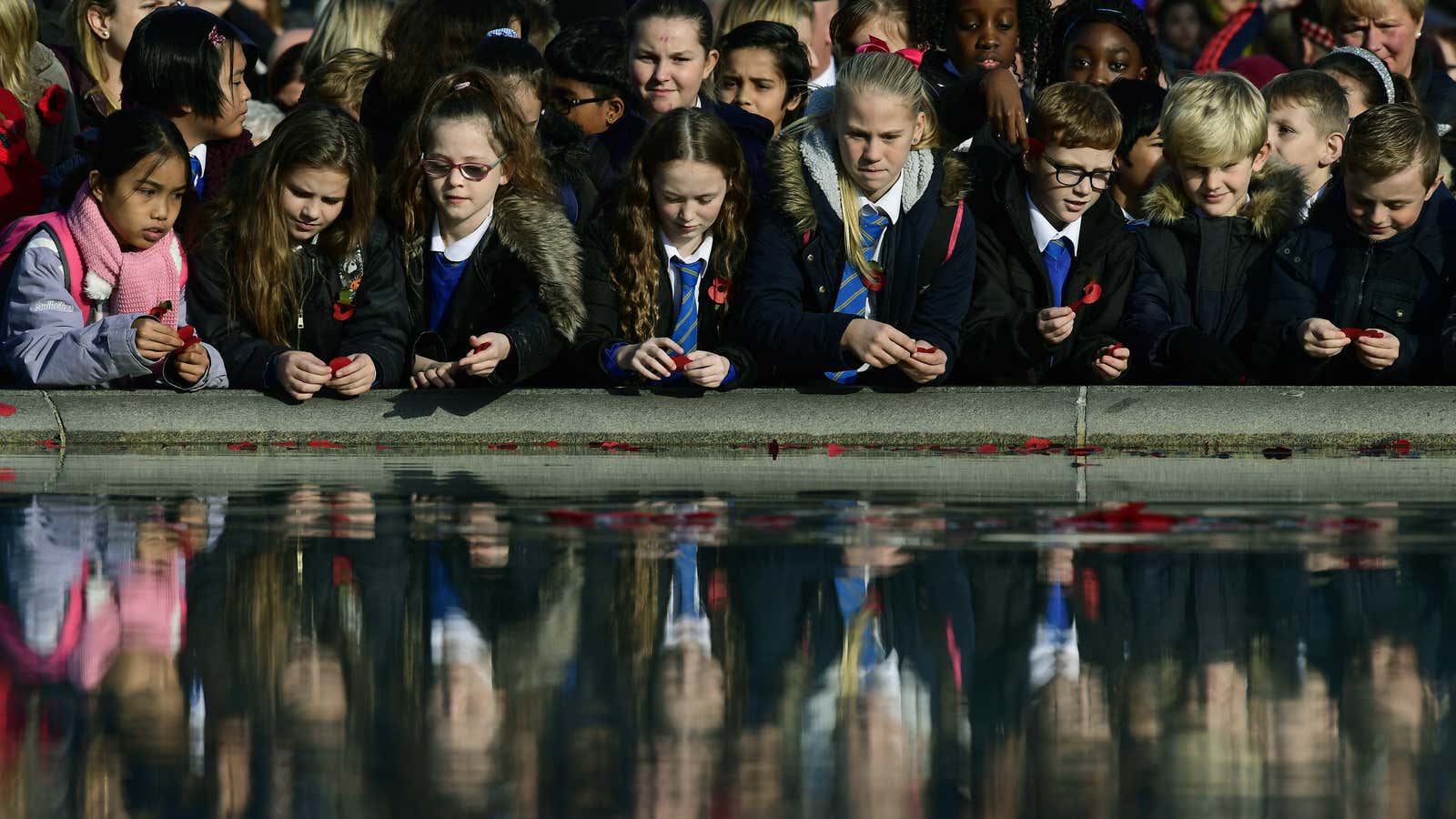There are few people on planet Earth who profess to like high-stakes exams. Teachers say they sap the joy out of learning, parents hate them for the stress they exact on kids and students dread them.
Now a handful of British private schools are scrapping a big one, saying the test’s toll on kids is too high. “We have listened to the pleas from our colleagues in our feeder schools—prep, primary and junior—to address the growing crisis in children’s mental health and to act to reduce the scope for excessive tutoring,” the schools wrote in a group statement.
Starting in 2019, the group of 12 independent girls’ schools will no longer administer the exam for 11-year-olds, an exam given at the end of primary school to determine where children go to secondary school. They will replace it with a one hour “bespoke cognitive ability test.”
“This change is driven by our belief that education is about more than outcomes—and admission is therefore about more than results. We are committed to human flourishing in all its fullness, and our interest is in the whole child,” their statement said.
Florid language aside, the move underscores the dramatic spike in mental health issues among young kids and teens. More than 60 kids a day are calling Childline, a children’s emergency help line in the UK; the organization offered 15% more counseling sessions related to suicide in 2016 compared to 2015, with a 9% increase in those considered to be actively suicidal. According to a survey conducted by stem4, a teenage mental health charity, exam worries topped the list of teen concerns (41% ranked it first), along with work overload (31%), friendship concerns (28%), lack of confidence (26%), concerns over body image (26%) and feelings of being overwhelmed (25%).
In the US, the number of children and teens admitted to children’s hospitals for thoughts of suicide or self-harm more than doubled during the last decade; 41% of incoming university freshman (pdf) reported feeling overwhelmed “by all I had to do”compared to 18% in 1985 and 29% in 2010.
Teachers and educators around the world are grappling with how to deal with high-stakes exams. In Singapore, the government is trying to create ways to reduce pressure on kids for their primary school leaving exam, also administered to 11-year-olds. And many parents in the US have “opted out” of high-stakes tests, refusing to let their kids take tests they did not believe in.
Many UK teachers have complained that the 11+ test saps their ability to teach for the sake of learning as they have to prepare kids for the test. “We have noted the damaging effect that teaching to the test has, particularly on creative writing and reading for pleasure, and we long for literacy teaching at KS2 to regain its freshness and pleasure,” the statement said (KS2 refers to key stage two, which covers year 3 until year 6).
The letter’s signatories include some of the UK’s top girls’ schools such as Francis Holland and Godolphin and Latymer. The change will take effect in 2019, at which time there will be no further written assessments.
The move has another clear goal: to confront the scourge of tutoring, a now £2 billion industry in the UK (and $5 billion global industry according to one 2015 estimate). When there are high-stakes tests, well-off parents hire tutors to help their kids prepare. This further exacerbates already profound education inequalities, starting with the fact that better schools tend to be located in wealthier areas.
Sutton Trust, a tank tank dedicated to improving social mobility, found the share of 11- to 16-year-olds in England and Wales who have hired tutors at some point in their lives rose from 18% in 2005 to 25% in 2016. In London, the figure was 42%. Private school kids are twice as likely to have tutors than state school kids, meaning the private school parents pay up, their kids raise the bar of performance, and those who can’t afford it are left behind.
It is of course possible that the decision to scrap the exam is being driven by increased demand for places in these elite schools (more wealthy kids are opting against boarding school and staying in London, putting pressure on the private day schools). Perhaps the admissions officers don’t want to grade quite so many long exams. Indeed, the letter said they would “develop the creativity of our interview process.” It won’t be long before some innovative tutoring group finds a way to convince parents they have the secret to coaching their kids to success on the new exam.
But the decision sends a powerful message that the rise in anxiety is real, and the schools know they hold the power to do something about it.
